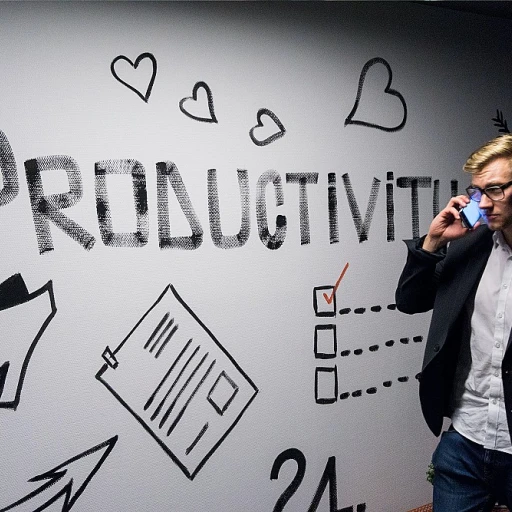
Understanding Agile Brain Consulting
Exploring the Expertise of Agile Brain Consulting
Agile Brain Consulting is a prominent player in the realm of organizational transformation. Embracing agile principles, this consulting firm helps businesses navigate the intricate process of digital transformation and process improvement. With their tailored solutions, they aim to enhance agility and foster a culture that is both adaptable and resilient. Leveraging micro consulting and agile devops practices, Agile Brain Consulting offers services tailored to meet the dynamic needs of modern enterprises. Their consulting process is underpinned by comprehensive training programs, facilitated by experienced scrum masters. These programs provide valuable insights and techniques that empower teams to drive effective change and deliver exceptional results. The team at Agile Brain Consulting is adept at guiding organizations through agile transformation initiatives. They offer a range of services, including certified scrum sessions, to equip teams with the knowledge and skills required for successful implementation. Their approach focuses on integrating technology, fostering communication, and using collaborative techniques to ensure smooth delivery and continuous improvement. Moreover, their cutting-edge artificial intelligence solutions support organizations in data-driven decision-making, ensuring that businesses remain at the forefront of operational excellence. By engaging clients in a thoughtful process of discovery and innovation, Agile Brain Consulting aims to instill a culture of continuous growth and improvement. For businesses seeking to elevate their corporate culture and drive engagement, exploring solutions that focus on employee involvement and collaboration can be a game-changer. For more insights on enhancing employee engagement, visit Enhancing Employee Engagement in the Workplace.The Role of Leadership in Agile Transformation
Leadership as a Catalyst for Agile Advancement
In the journey of integrating agile principles within an organization, leadership plays a pivotal role. Leaders not only set the direction but also serve as champions of agile transformation. They are instrumental in fostering a mindset that aligns with agile practices like scrum and agile devops. Leaders who passionately embrace change management can transform the very culture of a business. Agile frameworks rely heavily on leadership that prioritizes training and development. Whether it's through certified scrum masters or other tailored solutions, continuous coaching is essential. In organizations, leaders are expected to be the torchbearers of a transformation that encourages both personal and professional growth. In this context, leadership is not just about directing teams; it's about inspiring agile brains to engage fully in the process improvement journey. More than just process facilitators, leaders act as agile brains consulting experts, guiding the digital transformation pathway. They are tasked with managing resistance and fostering a collaborative environment where ideas can flourish. Organizations often look to such visionary guidance to maintain their position as the fastest growing in their respective domains. Moreover, progressive leaders harness cutting-edge technology and artificial intelligence to further empower teams. By incorporating innovative tools, leaders help teams better navigate challenges, enhance delivery, and boost overall customer satisfaction. As agile transformation becomes increasingly prevalent, leaders will continuously adapt their strategies to align with evolving business needs. Leadership not only shapes the surface layer of agile transformation but profoundly influences the underlying culture change necessary for successful adaptation. The engagement fostered by strong leadership often determines the trajectory of an organization's transformation success. It is therefore crucial for leaders to help cultivate a robust and sustainable agile culture within their organizations. For more insights on how leadership can create impactful programs, consider reading how HR programs can attract top talent.Building a Collaborative Environment
Fostering a Synergistic Team Atmosphere
Incorporating agile principles into a corporate culture goes beyond adopting new tools or processes. It requires a fundamental shift in mindset to build a truly collaborative environment. Agile Brain Consulting champions this transformation by working closely with organizations to facilitate open communication and teamwork. To create a cohesive team environment, leadership and management play a pivotal role. By actively engaging in agile transformation efforts, leaders model behaviors that encourage collaboration. Agile Brain Consulting provides training programs tailored to different levels of personnel, ensuring everyone from the scrum master to human resources is on the same page. One of the keys to success in this area is embracing diversity of thought. Encouraging input from all team members, whether through organized meetings or casual discussions, boosts innovation. In agile environments, ideas flow freely, and solutions emerge organically. The insights gained from diverse perspectives often lead to significant process improvements and advancements in digital transformation. Moreover, technology plays an integral role in agile methodology. Platforms that facilitate collaboration, whether they support scrum activities or artificial intelligence-driven process enhancement, keep teams aligned and focused. Agile Brain Consulting's focus on cutting-edge technology ensures teams are equipped with the best tools for effective delivery. By integrating these elements into an organization's culture, businesses can more effectively harness the benefits of agile devops. This commitment not only drives innovation but also enhances the speed of adaptation in the fast-paced world, ultimately leading to higher customer satisfaction and business success. If you're interested in further insights on achieving success, consider exploring the relevant SEO anchor for a deeper understanding of reaching performance goals effectively.Encouraging Innovation and Creativity
Fostering a Culture of Innovation and Creativity
In today's rapidly evolving business environment, fostering innovation and creativity within an organization is a crucial drive for success. Agile Brain Consulting emphasizes the importance of cultivating a mindset that encourages team members to think outside the box. By leveraging techniques such as micro consulting and strategic collaboration, organizations can unlock the creative potential of their employees, leading to groundbreaking solutions and improved delivery outcomes. Creating a workspace that nurtures innovation involves several key strategies, starting with investing in agile training and development programs. By equipping teams with the necessary scrum and agile devops skills, companies can enhance their problem-solving capabilities and promote a more innovative mindset. Offering opportunities for continuous learning through certified scrum master courses and management training will help employees stay abreast of cutting-edge technology trends. Collaborative environments are further strengthened through agile transformation processes, where leadership plays a pivotal role in supporting open communication and idea-sharing among teams. Encouraging employees to voice their ideas and take calculated risks contributes to a more dynamic business culture, thereby driving digital transformation efforts. Moreover, recognizing and rewarding innovation within the organization is essential. Agile Brains Consulting partners with businesses to implement systems that celebrate achievements like the fastest growing team initiatives, which can motivate staff to continue pushing the envelope. By establishing award programs for creative contributions, companies can foster a strong sense of ownership and inspire their teams to strive for excellence. This not only benefits the organization but also boosts overall customer satisfaction. Incorporating tools such as artificial intelligence in creative processes allows for effective process improvement and the streamlining of workflows. Additionally, by engaging expert guidance from experienced consultants, businesses can address potential roadblocks and continue cultivating a thriving culture of innovation. Through consistent efforts to promote a creative environment, organizations will not only adapt to change more efficiently but attract top industry talent eager to contribute to an inspiring workplace. Agile transformation and brains consulting will, indeed, lead to long-term success and sustainability for modern enterprises.Measuring Success in Agile Culture
Tracking and Celebrating Achievements
Incorporating agile methodologies into an organization involves continuous refinement and adaptation. Part of this journey is the ability to efficiently monitor and celebrate achievements. Agile brains consulting believes in a system where successes, both big and small, are meticulously recorded and acknowledged.
Creating a culture of recognition fosters a positive environment and is crucial for maintaining momentum. By using technology and tools for process improvement, teams can track their progress accurately. Agile transformation success hinges on transparent delivery metrics which can be shared with all stakeholders.
Feedback Loops and Iterative Learning
Agile methodologies emphasize the importance of feedback loops. Regular retrospectives, often guiding a team's journey, allow for the identification of hurdles and facilitate agile devOps practices. Agile brains consulting advocates for iterative learning, ensuring that lessons are internalized and applied in future projects.
By providing agile training, including sessions with a certified scrum master, organizations can cultivate a culture of continual learning. This approach not only boosts employee engagement but also aligns with the fastest growing trends in agile transformation.
Quantifying Business Impact
Ultimately, the success of an agile initiative is measured through tangible impact on the business. Agile brains consulting recommends using a mix of qualitative and quantitative measures to evaluate how transformations have affected customer satisfaction and business outcomes.
With tools powered by artificial intelligence and data analytics, organizations can gain insights into their performance, pinpoint areas for improvement, and ensure alignment with strategic goals. This data-driven approach allows for a comprehensive understanding of the agile culture's effect on business resilience and growth.













